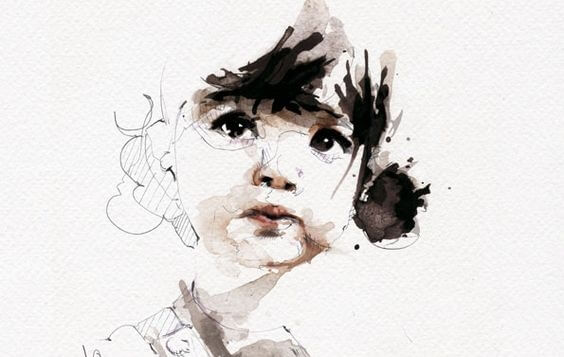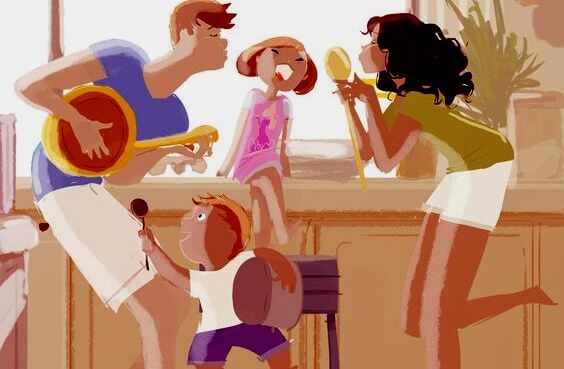Saying Sorry: Fundamental for every Family


Written and verified by the psychologist Gema Sánchez Cuevas
Children learn to apologize by seeing their parents say “I’m sorry.” But not all families are good at asking their own children for forgiveness when the situation calls for it. A lot of the time we forget that this is the kind of foundation that builds the strongest, happiest, and most respectful bonds.
One thing a lot of family units don’t think about enough is communication styles. A lot of the time we’re unaware of the huge number of codes, invisible commands, and psychological marks we project onto our loved ones with what we do, say, or even “don’t say.”
“If you make mistakes, show them that you’re not too proud to say ‘I’m sorry, I was wrong,’ and have the courage to say you’ll fix it.”
Does the way we interact plant the roots of harmony or does it actually sow the seeds of unhappiness in our most intimate group of relationships? This is one question that’s definitely worth reflecting on.
It doesn’t matter what your family dynamic is, we all make mistakes and “need” to ask for forgiveness. And to be able to pick out the moments where “you’re sorry,” you’ll also need emotional intelligence.
Emotional intelligence is a healthy, inspiring tool that’s also extremely important for raising and educating your children. It’s a great way to give your kids a value system where they have a more intimate view of human beings, and where they accept that we all make mistakes. But it also means knowing how to ask for forgiveness to help right your wrongs, to maintain all your bonds…

Saying “I’m sorry” is a basic part of our coexistence
We all make mistakes. There’s not a single person who’s come to this earth with a material that makes them immune to mistakes, mess-ups, or misunderstandings. So when it comes to raising and educating children, no one can avoid errors, inappropriate practices, incorrect focuses, neglect, etc.
And the key to all this isn’t about making more or less mistakes than your children. The key is how you process these situations after they come up.
Spotting the mistake and recognizing your responsibility by saying “I’m sorry” to your child is its own kind of education. But our adult “culture” doesn’t always approve of that or make it easy. It’s like parents themselves are afraid of breaking that myth of infallibility in their children’s eyes.
But the thing is, if we spend all our time trying to get our children to learn to apologize, how do we do it ourselves? That’s when (some people think) you run the risk of losing your authority, of discrediting yourself…
This is what a lot of parents think. Fathers do it when they make huge promises to their children that they don’t end up fulfilling. Mothers do it when they end up shouting at their child for any silly thing, because in that moment they aren’t able to process the anxiety from work and leave it at the door before they come in.

Saying “I’m sorry” is a basic part of coexistence. It’s the right path to take when a problem comes up and you’re responsible for it as an adult.
And there aren’t many actions that encapsulate this expression, because it’s so full of empathy and a recognition of the rules for coexistence. In the end, no matter how big or small, they are rules we all have to follow for the good of everyone.
Learning to be a family
A lot of us go through our days saying “I’m sorry” for the smallest things. We do it when we run into someone, when we forget to give up our seat for people on the bus when we forget to bring that book for our classmate or coworker…
If it’s important to practice the art of saying “I’m sorry” when it comes to the smallest things, it’s absolutely essential to do it with the people closest to us, the ones we love most.
Plus, because you don’t see them every day, or just because of who they are (partners, children, parents, siblings, etc), we’ll assume that they’ll forgive you.
That’s because love, affection, and care are things we have to work on. Learning to say “I’m sorry” is what makes a family. It creates a space where you can raise happy children with the right values. And now we’ll look at some of the main benefits.

Asking your children for forgiveness: a step forward with huge benefits
- Saying “I’m sorry” to your kids will help you focus more in your day to day life. If you can make it through your daily whirlwind being aware of your own fallibility with them, it will help you stay more in the present, more attuned to your child’s needs.
- It’s also a good idea for you to understand one thing: asking a child for forgiveness isn’t an act of weakness. It’s the exact opposite, it’s a display of maturity and responsibility.
- Plus, recognizing the mistake you made with your children will prevent the situation from getting more complicated. And otherwise, they might stop trusting you little by little.
- In any relationship where the adults can say “I’m sorry” and ask for forgiveness from their children, there are wonderful lessons to be learned on both sides. We’re not infallible just because we’re older, and making mistakes is part of our DNA. It’s also a great way to improve as human beings.
Wrapping up, one thing every family needs to understand–if they want to have happiness and harmony–is that knowing how to say “I’m sorry” is a psychological skill that’s good for everyone.
So start doing it without any fear, without looking back. And if you do, you’ll have a priceless new opportunity, the opportunity to know yourself better.
This text is provided for informational purposes only and does not replace consultation with a professional. If in doubt, consult your specialist.








